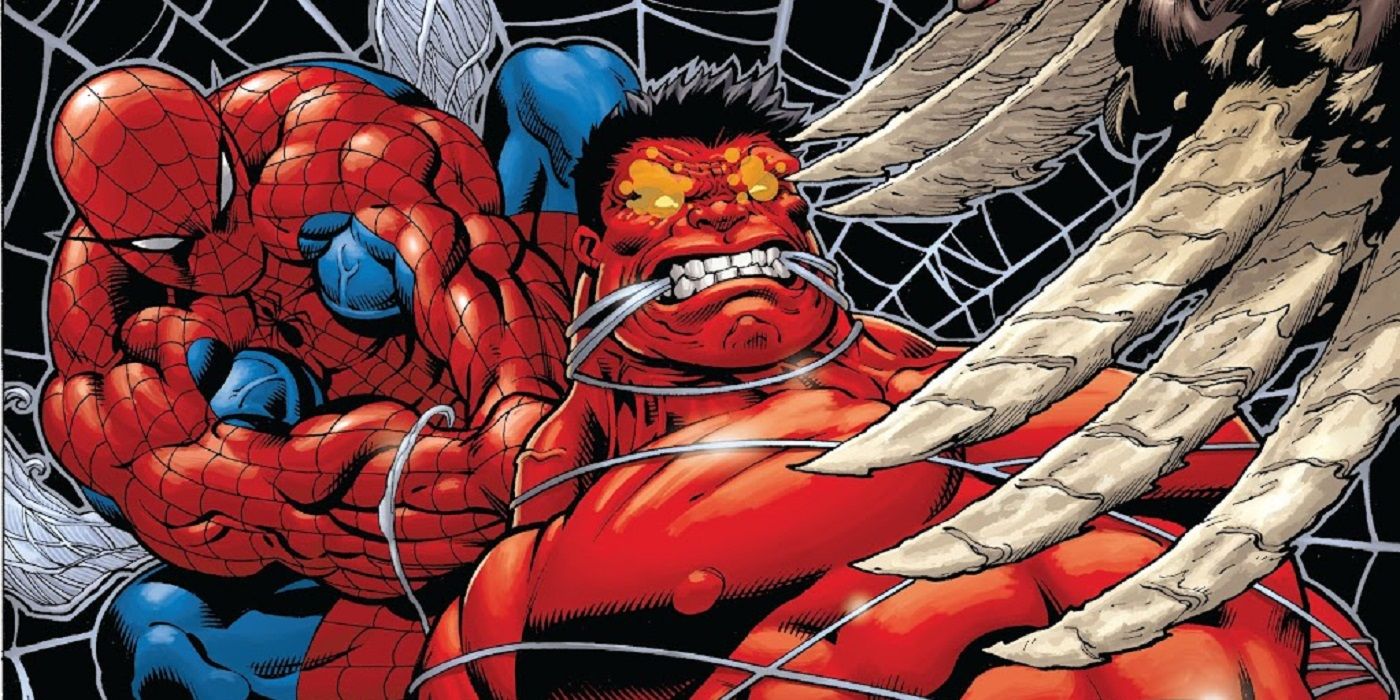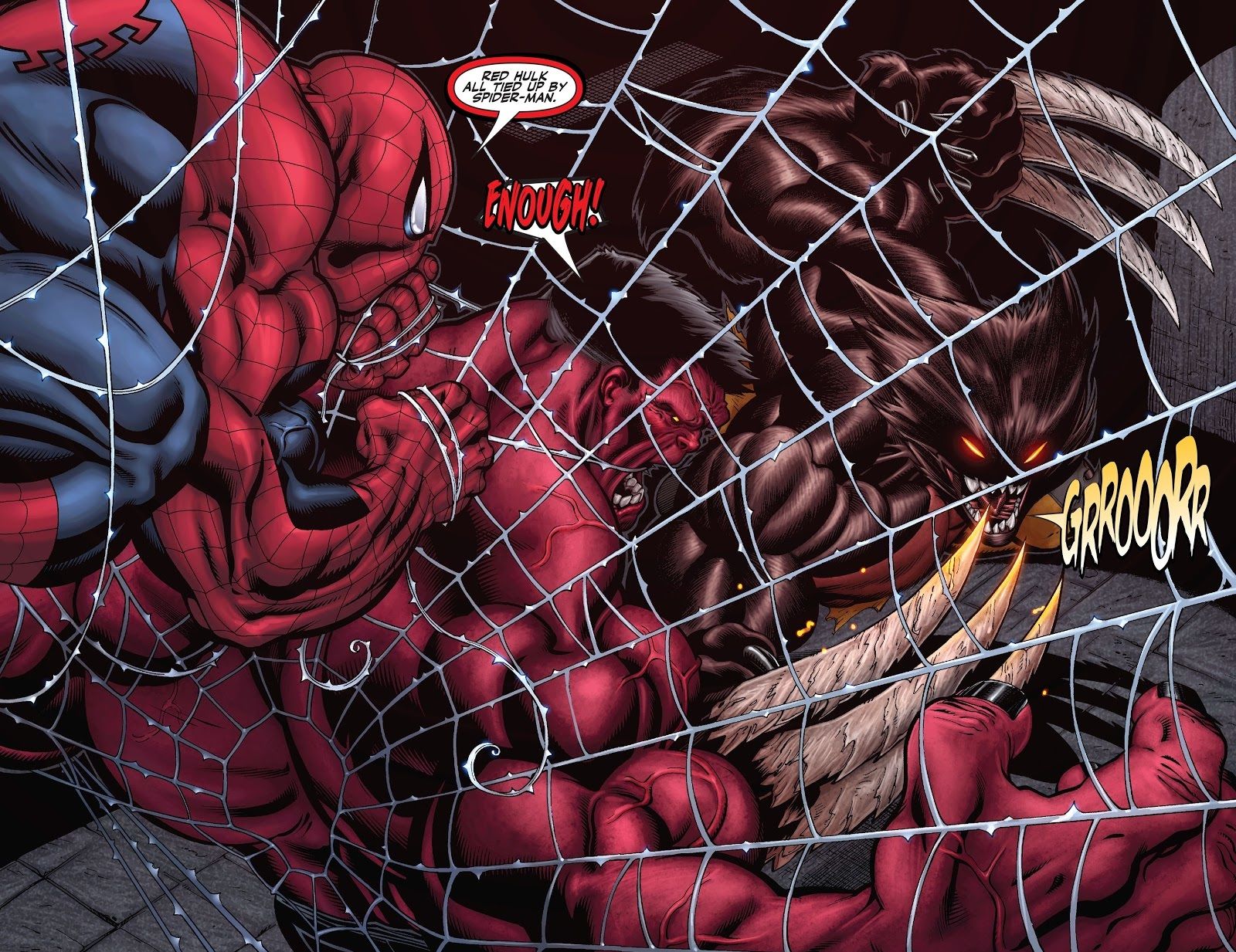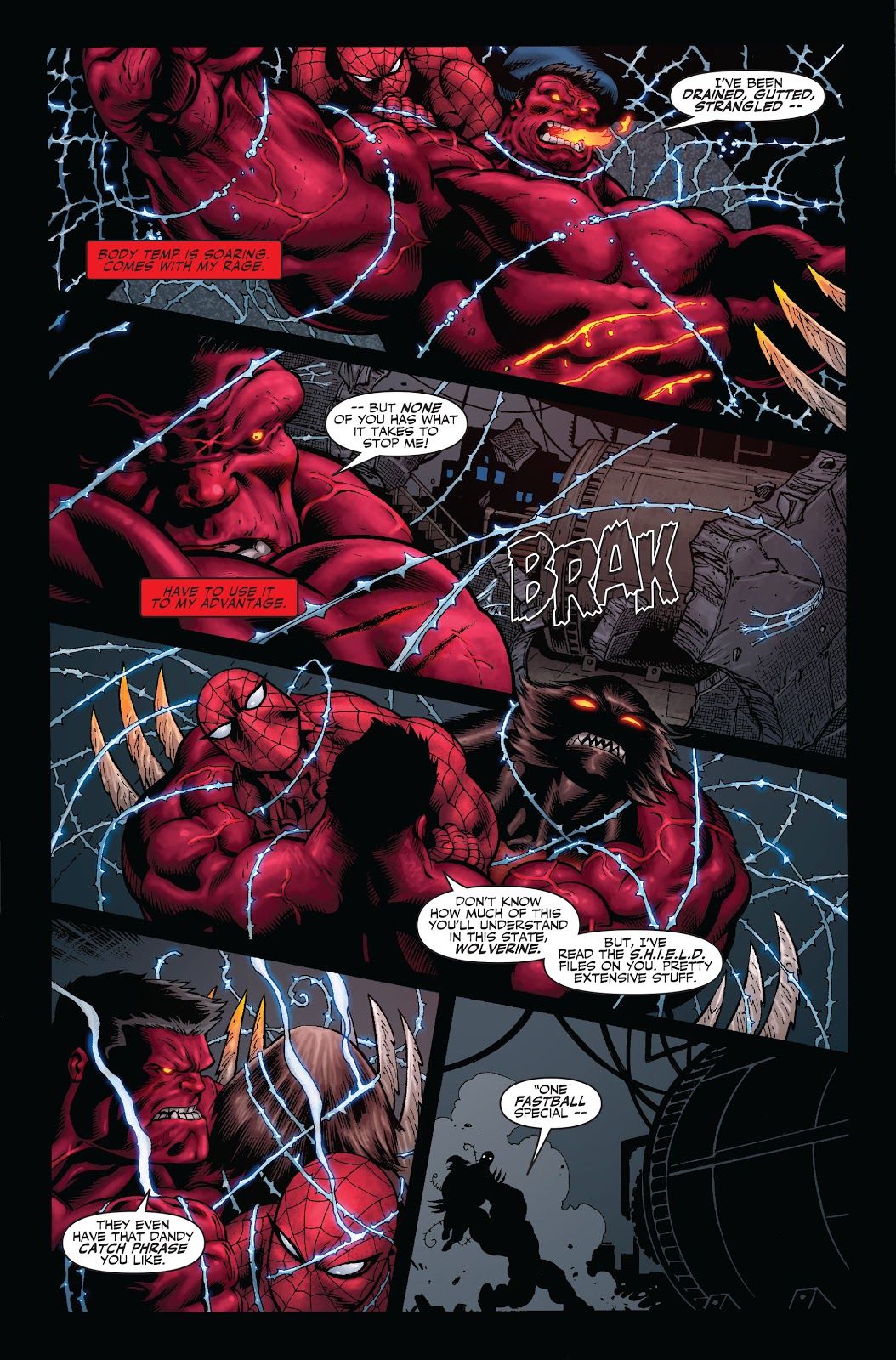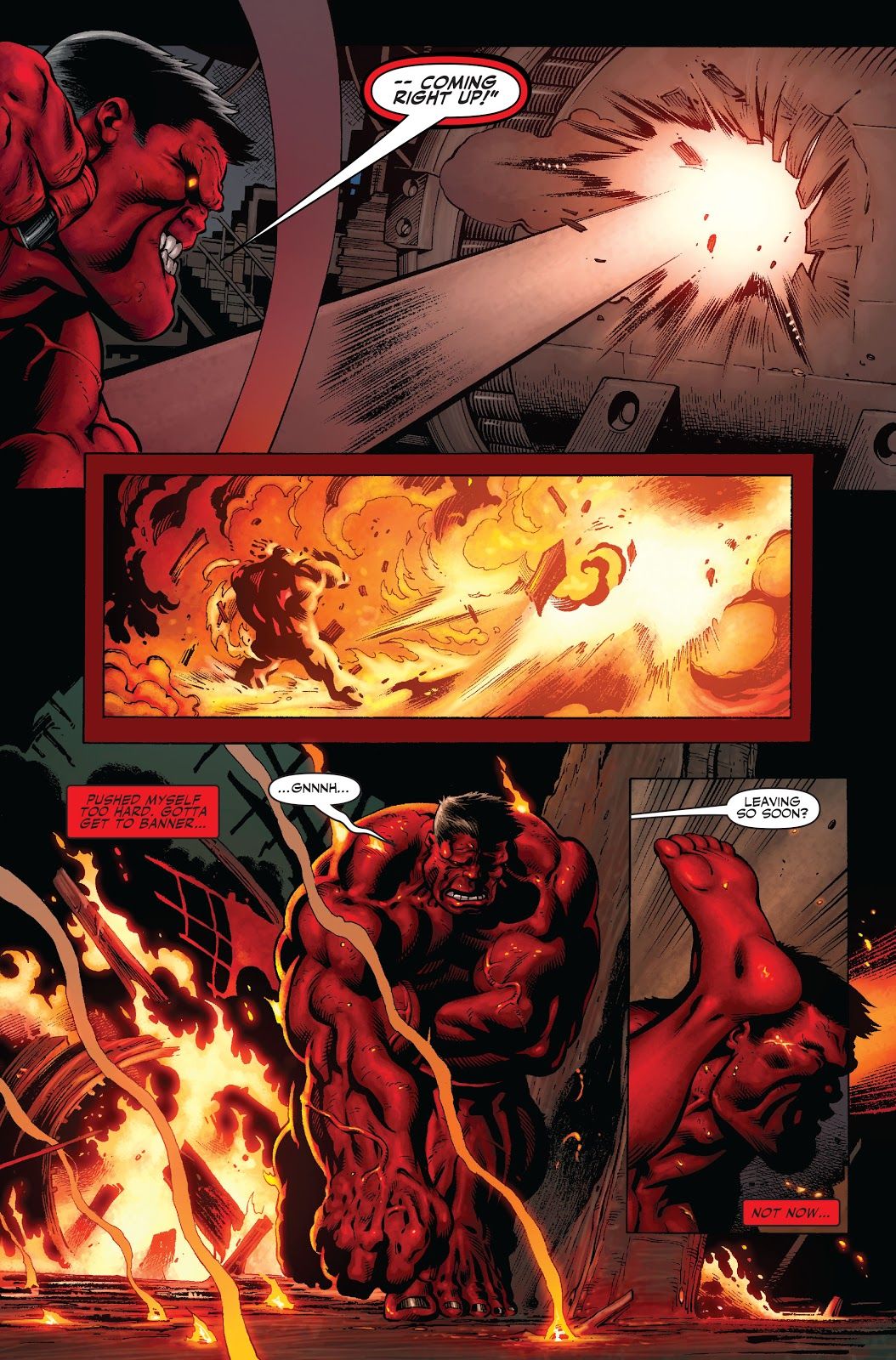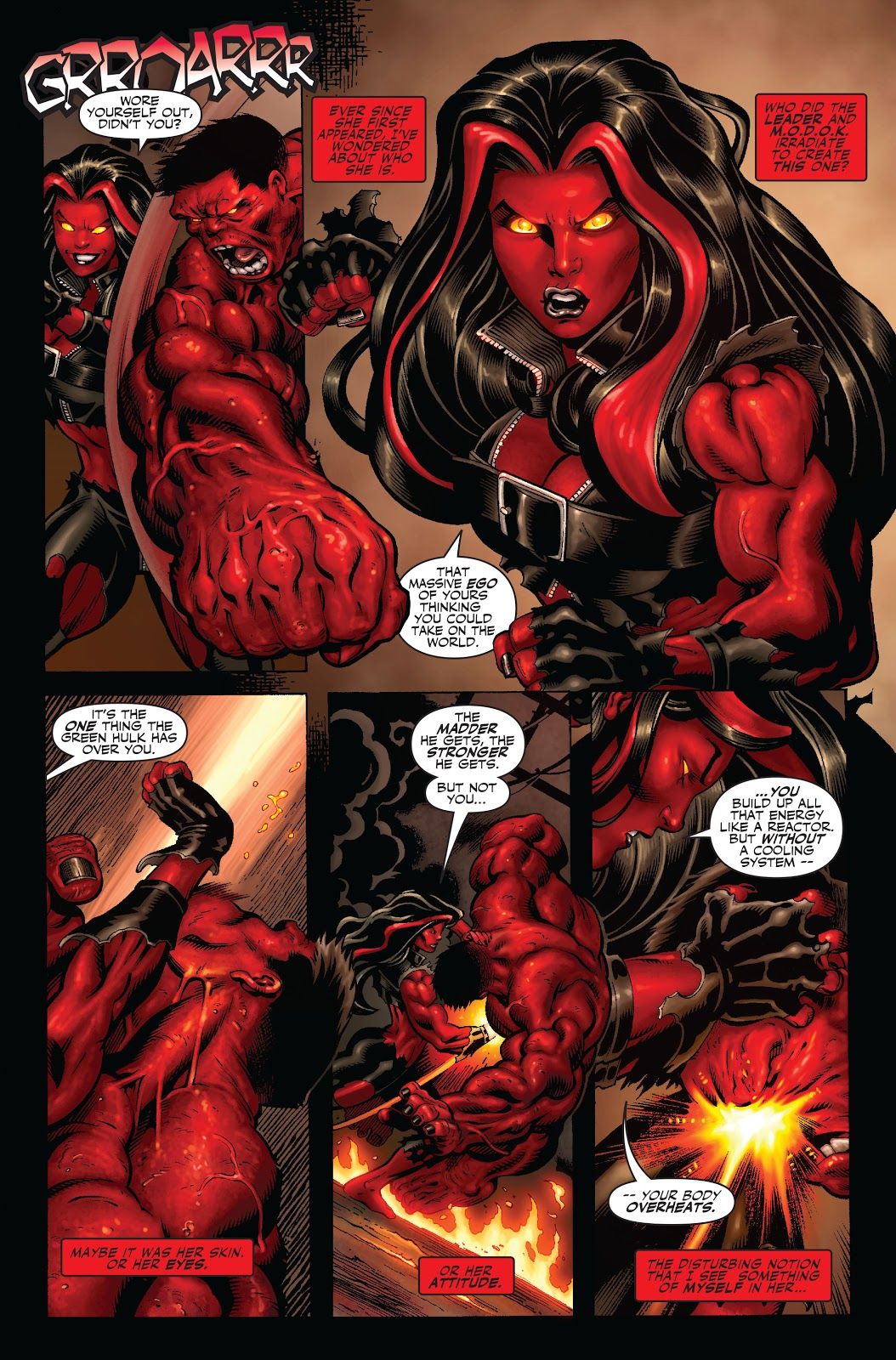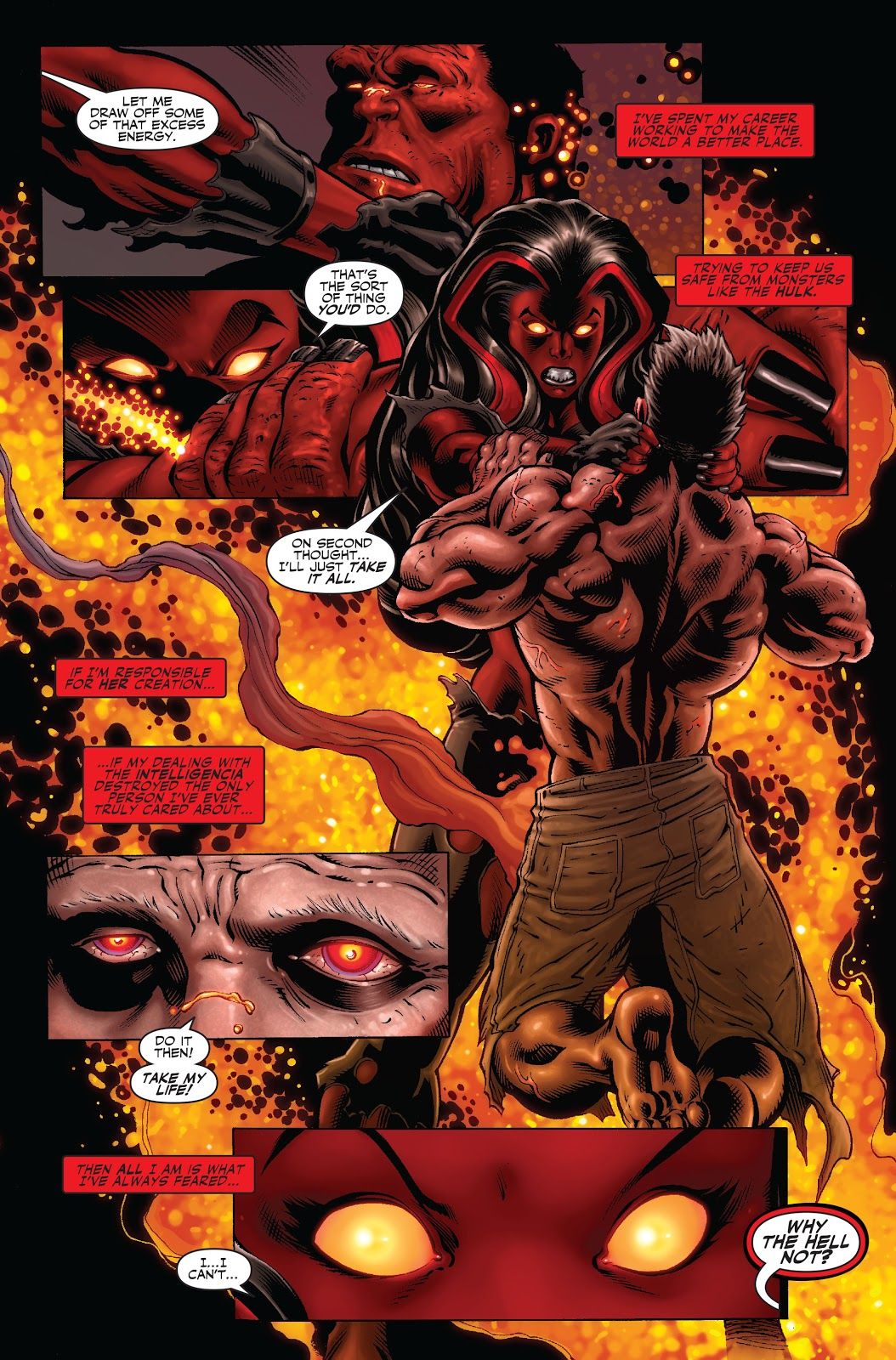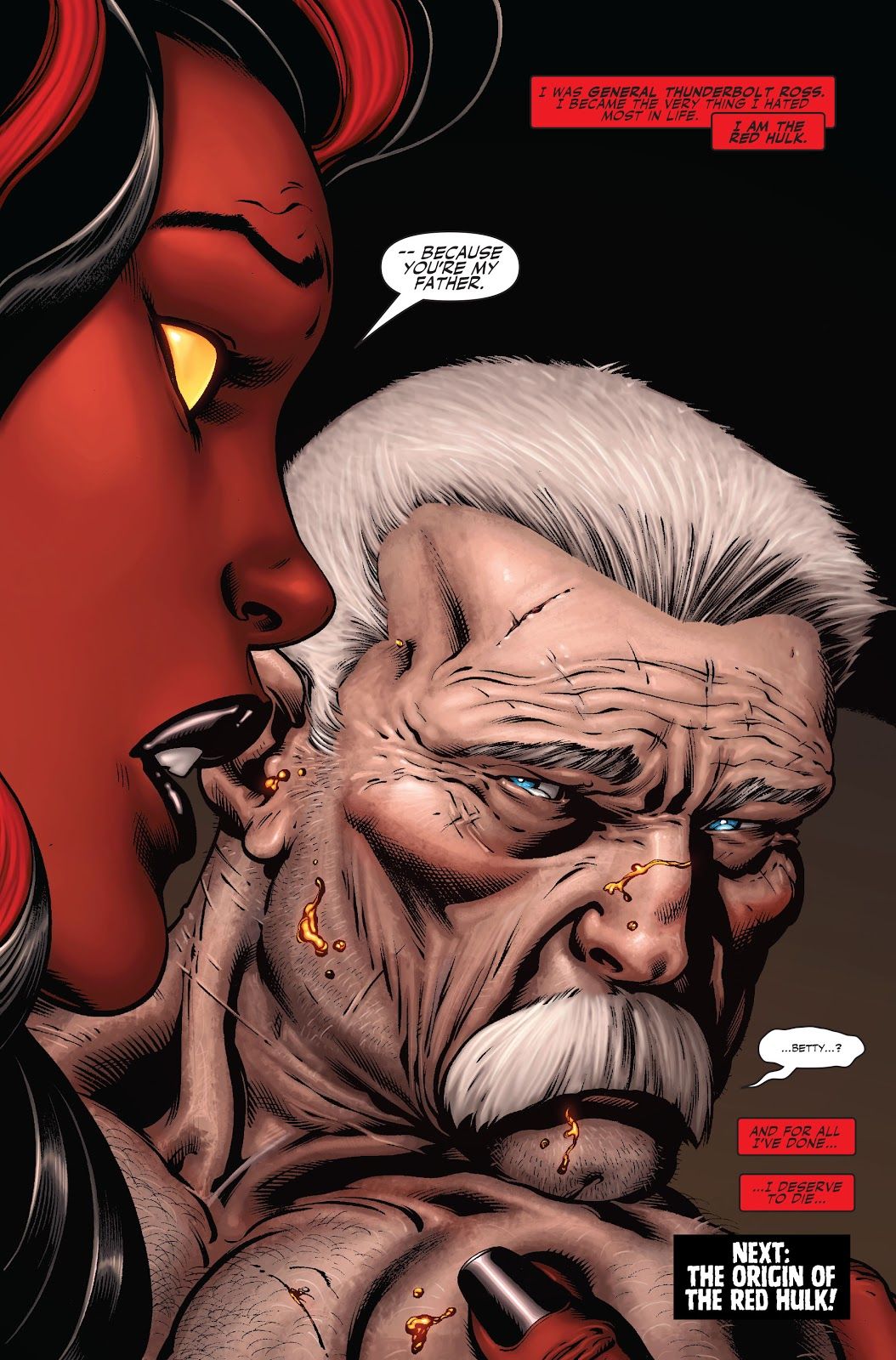This is "Look Back," a feature that I plan to do for at least all of 2019 and possibly beyond that (and possibly forget about in a week, who knows?). The concept is that every week (I'll probably be skipping the four fifth weeks in the year, but maybe not) of a month, I will spotlight a single issue of a comic book that came out in the past and talk about that issue (often in terms of a larger scale, like the series overall, etc.). Each week will be a look at a comic book from a different year that came out the same month X amount of years ago. The first week of the month looks at a book that came out this month ten years ago. The second week looks at a book that came out this month 25 years ago. The third week looks at a book that came out this month 50 years ago. The fourth week looks at a book that came out this month 75 years ago. The occasional fifth week looks at books from 20/30/40/60/70/80 years ago.
Today, I go back to May 2010 to see the reveal of the Red Hulk's secret identity in Hulk #22 (by Jeph Loeb, Ed McGuinness, Mark Farmer, Morry Hollowell & Chris Sotomayor).
The Hulk debuted in 2008 with a flurry of action as Loeb and McGuinness introduced a new, red version of the Hulk. The Red Hulk was seemingly as strong as the Green Hulk, but he was also crafty. He knew strategy and tactics and could fight dirty, if need be.
He clearly had some sort of master plan, but as time went by, we see that he was aligned with a group of super-smart supervillains known as the Intelligencia that no longer had shared interests as the Red Hulk. This was made clear when they co-opted his planned coup of the United States using an army of gamma-powered soldiers. They used that plan themselves on an army of A.I.M. soldiers and then gamma irradiated the Avengers, X-Men and Fantastic Four and set the "Hulked-Out Heroes" against the Red Hulk.
Luckily for the Red Hulk, he had experience with the transformation while the heroes did not and his intelligence was unaffected, while theirs were all messed up, so he had a big advantage that he used to take out most of the heroes, leaving just Spider-Hulk and Hulkverine, but he was able to take them down, as well...
This left him vulnerable, though, to the Red She-Hulk. She had popped up on the scene a year or so into the series and she kept causing trouble for the Red Hulk, but he couldn't tell for sure who she was, but he felt that she had some connection to him. She was also connected to the Intelligencia.
She had realized that the Red Hulk's powers burn out over time, unlike the Green Hulk, who gets stronger the madder he gets. She is able to use this fact to attack the Red Hulk after he was already severely weakened from defeating the various Hulked-Out Heroes.
When she is about to kill him, though, something causes her to hesitate...
Yep, she realized that she is the believed dead Betty Ross (formerly Betty Banner) and the Red Hulk is her father, Thunderbolt Ross, the man who hunted down Hulks for years has now decided to become a Hulk himself!
Betty and Ross were BOTH believed dead at one point or another (and I'll do a future post where I'll examine the various clues we had on the way to the Red Hulk's reveal), so this was a major reveal and a major turning point in both characters' lives, as now that we knew their identities, it freed up writers to do a lot more character-based work with them, as now that they didn't have to hide their secrets anymore.
If you folks have any suggestions for May (or any other later months) 2010, 1995, 1970 and 1945 comic books for me to spotlight, drop me a line at brianc@cbr.com! Here is the guide, though, for the cover dates of books so that you can make suggestions for books that actually came out in the correct month. Generally speaking, the traditional amount of time between the cover date and the release date of a comic book throughout most of comic history has been two months (it was three months at times, but not during the times we're discussing here). So the comic books will have a cover date that is two months ahead of the actual release date (so October for a book that came out in August). Obviously, it is easier to tell when a book from 10 years ago was released, since there was internet coverage of books back then.

